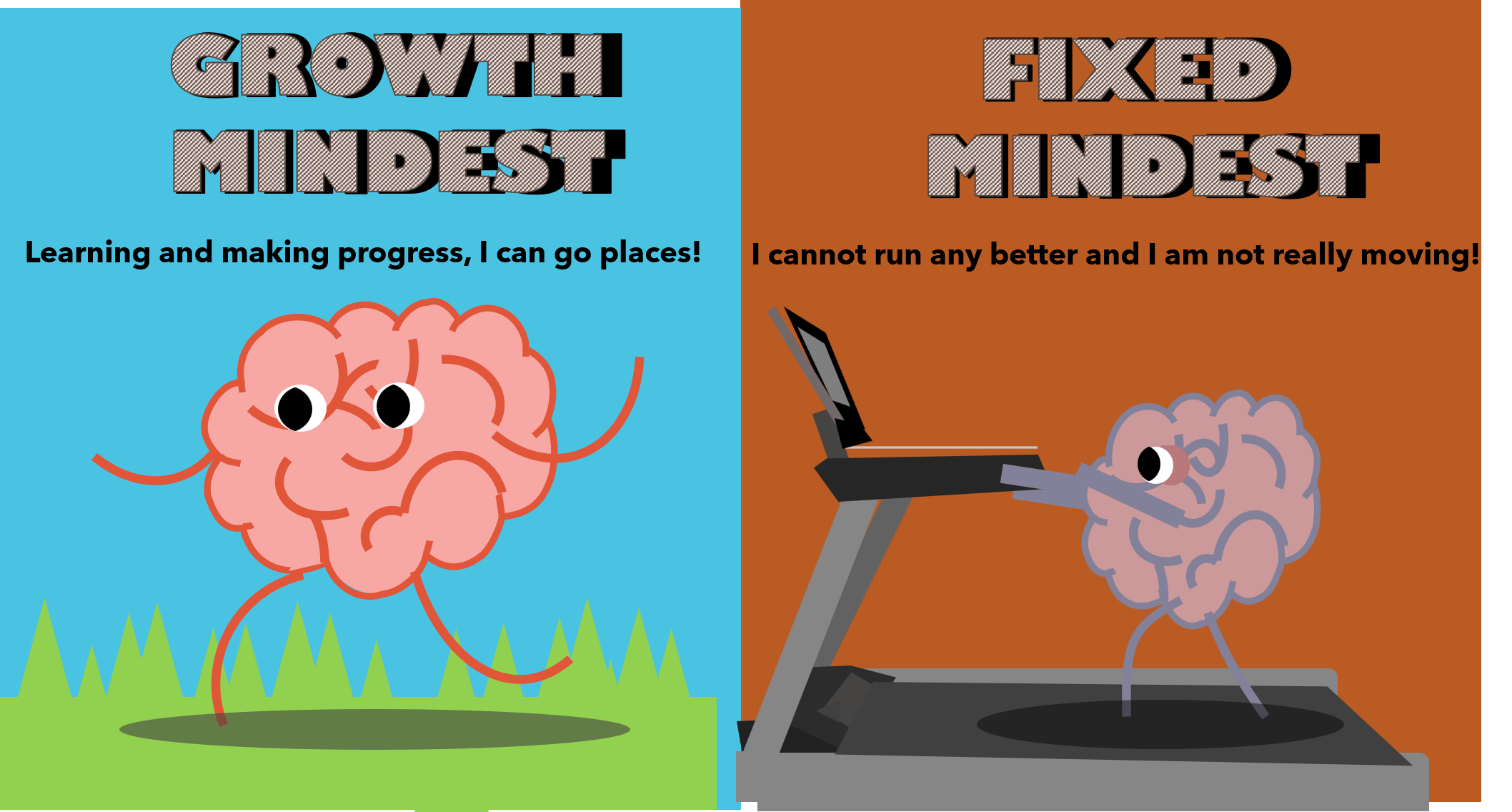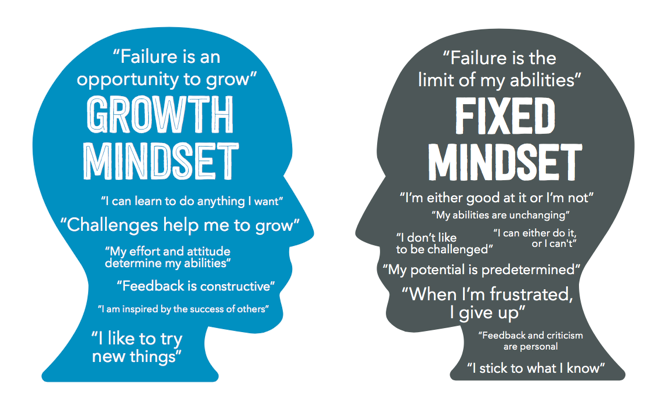A growth mindset embraces challenges and believes abilities can be developed, whereas a fixed mindset avoids challenges and believes abilities are innate.
The Science Behind Growth Mindset: How to Train Your Brain for Success
In today’s fast-paced and ever-changing world, having a growth mindset is more important than ever. The concept of growth mindset, popularized by psychologist Carol Dweck, is the belief that our abilities and intelligence can be developed through dedication and hard work.
This mindset is in contrast to a fixed mindset, where individuals believe that their abilities are fixed and cannot be changed. Developing a growth mindset can have a profound impact on both our personal and professional lives, allowing us to overcome challenges, embrace failure, and continuously learn and grow.
What is Growth Mindset and Why is it Important?
A growth mindset is the belief that our abilities can be developed through effort, practice, and perseverance. It is the understanding that intelligence and talent are not fixed traits, but rather qualities that can be cultivated and improved upon over time. In contrast, a fixed mindset is the belief that our abilities are set in stone and cannot be changed.
The importance of a growth mindset cannot be overstated. Research has shown that individuals with a growth mindset are more likely to take on challenges, persist in the face of setbacks, and ultimately achieve higher levels of success. They view failure as an opportunity for growth and are not deterred by setbacks. In contrast, individuals with a fixed mindset tend to avoid challenges, give up easily, and view failure as a reflection of their abilities.
Developing a growth mindset is crucial in both our personal and professional lives. In our personal lives, it allows us to approach challenges with resilience and optimism. It helps us overcome obstacles and achieve our goals. In our professional lives, a growth mindset enables us to adapt to new situations, learn new skills, and continuously improve. It allows us to embrace feedback and criticism as opportunities for growth, rather than as personal attacks.
The Neuroscience of Growth Mindset: How the Brain Learns and Adapts
To understand the importance of a growth mindset, it is helpful to understand how the brain works. The brain is a complex organ that is constantly changing and adapting. This ability of the brain to change and adapt is known as neuroplasticity.
Neuroplasticity refers to the brain’s ability to reorganize itself by forming new neural connections throughout life. It allows the brain to learn new skills, adapt to new situations, and recover from injury or disease. Neuroplasticity is the foundation of learning and growth.
A growth mindset has a direct impact on neuroplasticity. When we believe that our abilities can be developed, we are more likely to engage in activities that promote learning and growth. This, in turn, strengthens the neural connections in our brain and enhances our ability to learn and adapt.
The Role of Neuroplasticity in Developing a Growth Mindset
Neuroplasticity plays a crucial role in developing a growth mindset. By understanding how the brain works and its capacity for change, we can actively cultivate a growth mindset through neuroplasticity.
One way to develop a growth mindset through neuroplasticity is by engaging in deliberate practice. Deliberate practice involves setting specific goals, breaking them down into smaller steps, and engaging in focused practice to achieve those goals. By consistently challenging ourselves and pushing beyond our comfort zones, we can strengthen the neural connections in our brain and develop new skills.
Another way to develop a growth mindset through neuroplasticity is by seeking out new experiences and learning opportunities. When we expose ourselves to new ideas, perspectives, and challenges, we stimulate the growth of new neural connections in our brain. This not only enhances our ability to learn and adapt but also expands our understanding of the world around us.
How to Identify and Overcome Fixed Mindset Traps
Developing a growth mindset requires us to identify and overcome fixed mindset traps. These traps are patterns of thinking and behavior that reinforce a fixed mindset and hinder our ability to learn and grow.
One common fixed mindset trap is the fear of failure. Many individuals with a fixed mindset avoid taking risks or trying new things because they are afraid of failing. They believe that failure is a reflection of their abilities and see it as a personal attack. To overcome this trap, it is important to reframe failure as an opportunity for growth and learning. By embracing failure as a natural part of the learning process, we can overcome our fear and take on new challenges.
Another fixed mindset trap is the belief that talent alone leads to success. Individuals with a fixed mindset often believe that success is solely determined by innate talent and ability. They discount the importance of effort, practice, and perseverance. To overcome this trap, it is important to recognize the value of hard work and dedication. By embracing the idea that success is a result of effort and perseverance, we can develop a growth mindset and achieve higher levels of success.
The Power of Positive Self-Talk and Self-Affirmations
Positive self-talk and self-affirmations are powerful tools for developing a growth mindset. They involve consciously replacing negative thoughts and beliefs with positive ones.
Positive self-talk involves using positive statements to challenge negative thoughts and beliefs. For example, instead of saying “I can’t do this,” you can say “I am capable of learning and growing.” By reframing negative thoughts in a positive light, we can cultivate a growth mindset and overcome self-doubt.
Self-affirmations involve repeating positive statements about ourselves to reinforce positive beliefs and boost self-confidence. For example, you can say “I am resilient and capable of overcoming challenges” or “I am constantly learning and growing.” By regularly practicing self-affirmations, we can strengthen our belief in our abilities and develop a growth mindset.
The Importance of Embracing Challenges and Failure
Challenges and failure are an integral part of the learning process. They provide us with opportunities to grow, learn, and improve. Embracing challenges and failure is essential for developing a growth mindset.
When we embrace challenges, we push ourselves beyond our comfort zones and expose ourselves to new experiences and opportunities for growth. By taking on challenges, we develop resilience, perseverance, and problem-solving skills. We learn to overcome obstacles and achieve our goals.
Similarly, embracing failure allows us to learn from our mistakes and make improvements. Failure is not a reflection of our abilities but rather a stepping stone towards success. By embracing failure as a learning opportunity, we can develop a growth mindset and continuously improve.
The Benefits of Learning from Feedback and Criticism
Feedback and criticism are valuable sources of information that can help us develop a growth mindset. They provide us with insights into our strengths and weaknesses and offer guidance for improvement.
When we receive feedback or criticism, it is important to approach it with an open mind and a willingness to learn. Instead of viewing it as a personal attack, we can see it as an opportunity for growth and development. By actively seeking feedback and incorporating it into our learning process, we can enhance our skills and abilities.
Learning from feedback and criticism also requires us to be self-reflective and self-aware. It involves taking an honest look at ourselves and acknowledging areas where we can improve. By cultivating self-awareness, we can develop a growth mindset and continuously strive for personal and professional growth.
The Impact of Mindfulness and Meditation on Growth Mindset
Mindfulness and meditation are powerful practices that can help develop a growth mindset. They involve bringing our attention to the present moment and cultivating a non-judgmental awareness of our thoughts, feelings, and sensations.
By practicing mindfulness, we can become more aware of our fixed mindset tendencies, such as negative self-talk or self-doubt. We can observe these thoughts without judgment and choose to replace them with more positive and growth-oriented thoughts.
Meditation, on the other hand, helps us cultivate a sense of calm and focus. It allows us to quiet the mind and create space for new ideas and perspectives. By regularly practicing meditation, we can develop a growth mindset and enhance our ability to learn and adapt.
The Role of Grit and Perseverance in Developing a Growth Mindset
Grit and perseverance are essential qualities for developing a growth mindset. They involve the ability to persist in the face of challenges, setbacks, and obstacles.
Grit is the ability to maintain passion and perseverance towards long-term goals. It involves having a sense of purpose and a willingness to put in the effort required to achieve those goals. By cultivating grit, we can overcome challenges, stay focused on our goals, and develop a growth mindset.
Perseverance, on the other hand, is the ability to keep going despite difficulties or setbacks. It involves bouncing back from failure, learning from mistakes, and continuing to move forward. By cultivating perseverance, we can develop resilience and tenacity, which are essential for developing a growth mindset.
How to Cultivate a Growth Mindset in Children and Students
Cultivating a growth mindset in children and students is crucial for their long-term success. Here are some tips for teaching children and students about growth mindset:
1. Teach them about the brain: Explain to children and students how the brain works and its capacity for change. Help them understand that their abilities can be developed through effort and practice.
2. Encourage effort over outcome: Emphasize the importance of effort, practice, and perseverance. Teach children and students that success is not solely determined by innate talent but rather by hard work and dedication.
3. Provide opportunities for growth: Create an environment that encourages learning, exploration, and growth. Provide children and students with opportunities to take on challenges, learn new skills, and overcome obstacles.
4. Foster a growth mindset culture: Create a classroom or home environment that promotes a growth mindset. Encourage collaboration, support, and positive reinforcement. Celebrate effort, progress, and improvement.
5. Model a growth mindset: Be a role model for children and students by demonstrating a growth mindset in your own actions and words. Show them that you are constantly learning and growing.
The Long-Term Benefits of a Growth Mindset for Personal and Professional Success
Developing a growth mindset has numerous long-term benefits for personal and professional success. Here are some of the ways a growth mindset can lead to success:
1. Increased resilience: A growth mindset allows us to bounce back from setbacks and persevere in the face of challenges. It enhances our ability to overcome obstacles and achieve our goals.
2. Continuous learning and improvement: A growth mindset fosters a love of learning and a desire for self-improvement. It encourages us to seek out new experiences, learn new skills, and continuously grow.
3. Adaptability: A growth mindset enables us to adapt to new situations, embrace change, and thrive in an ever-changing world. It allows us to be flexible, open-minded, and willing to take on new challenges.
4. Enhanced problem-solving skills: A growth mindset promotes critical thinking, creativity, and problem-solving skills. It allows us to approach problems from different perspectives and find innovative solutions.
5. Increased confidence: By developing a growth mindset, we become more confident in our abilities and more willing to take risks. This confidence translates into personal and professional success.
In conclusion, developing a growth mindset is crucial for personal and professional success. By cultivating a belief in our ability to learn and grow, we can overcome challenges, embrace failure, and continuously improve. Through the power of neuroplasticity, positive self-talk, embracing challenges and failure, and other strategies, we can develop a growth mindset and unlock our full potential. So, let us embrace the power of growth mindset and embark on a journey of continuous learning and growth.
Originally posted 2024-03-01 16:12:10.




